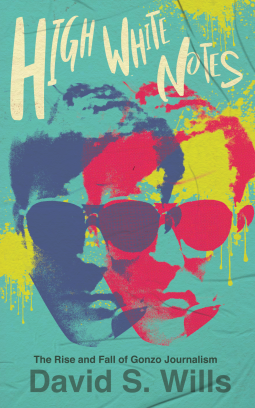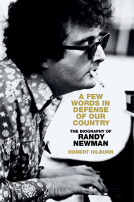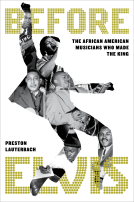
High White Notes
The Rise and Fall of Gonzo Journalism
by David S. Wills
This title was previously available on NetGalley and is now archived.
Send NetGalley books directly to your Kindle or Kindle app
1
To read on a Kindle or Kindle app, please add kindle@netgalley.com as an approved email address to receive files in your Amazon account. Click here for step-by-step instructions.
2
Also find your Kindle email address within your Amazon account, and enter it here.
Pub Date Nov 11 2021 | Archive Date Nov 30 2021
Description
High White Notes: The Rise and Fall of Gonzo Journalism aims to provide the first in-depth analysis of the writings of Hunter S. Thompson, one of the most misunderstood authors of the 20th century. His Gonzo journalism was an odd fusion of fact and fiction that garnered widespread adoration but for all the wrong reasons.
In this book, David S. Wills (author of books on William Burroughs and Allen Ginsberg) traces the author’s life from birth to death, exploring how Thompson developed an entirely unique literary voice and why he used such odd techniques to craft a form of prose that defied categorisation. This book not only explores Thompson’s meteoric rise to literary superstardom, but also charts the startling decline in the quality of his work that came after his 1972 foray into political reporting.
High White Notes will be released in November 2021 to coincide with the 50th anniversary of the publication of “Fear and Loathing in Las Vegas” in Rolling Stone.
Advance Praise
“High White Notes: The Rise and Fall of Gonzo Journalism by David S. Wills is the most insightful and in-depth study yet of the life and work of Hunter S. Thompson. High White Notes joins the pantheon of Outlaw Journalist: The Life and Times of Hunter S. Thompson by William McKeen, Freak Kingdom: Hunter S. Thompson's Manic Ten-Year Crusade Against American Fascism by Timothy Denevi, and The Hell’s Angel’s Letters: Hunter S. Thompson, Margaret Harrell and The Making of An American Classic by Margaret Ann Harrell as the leading studies on Hunter S. Thompson's life and work to date.”
- Ron Whitehead, Outlaw Poet & U.S. National Beat Poet Laureate
“In High White Notes, David S. Wills sets himself the task of examining the life and work of Hunter S. Thompson, ‘a writer with an incredible grasp of language’ but also ‘a complex, troubling, and enigmatic figure.’ Quite predictably, the red herrings in the biography made for a formidable challenge, but High White Notes dispels many a myth and takes its subject as seriously as he deserves. It’s time for this comprehensive appraisal—bringing Hunter’s history all too realistically and soberly to life—in the tragic parts, extensively enlarged upon and illustrated, sometimes moving me to tears.”
- Margaret A. Harrell, author of The Hell’s Angels Letters
Available Editions
| EDITION | Paperback |
| ISBN | 9780993409981 |
| PRICE | $18.99 (USD) |
Links
Average rating from 4 members
Featured Reviews
 Dan O, Bookseller
Dan O, Bookseller
My thank to NetGalley and the publisher Beatdom Books for an advanced copy of this literary study and memoir.
Hunter S. Thompson cast a huge shadow over the cultural and journalistic world, where the word Gonzo meant not just a writing style but a way of life, a religion for the strong and those willing to fight for it, whatever it was. From the outside women wanted him, and men wanted to be him, an outlaw with a savage typewriter and personality. Until editors, journalists, lovers and friends got closer to the good Doctor of Journalism and saw what Gonzo really had done to its creator, a hopeless addict watching his talent drain away, with occasional flashes, but spiraling down to almost parody.
High White Notes: The Rise and Fall of Gonzo Journalism,named for by the feeling and hum that Thompson would feel when the writing was kicking on all cylinders, by David S. Wills is a biography of not just the man Thompson was, but the words he used and how he put them together to create his classic works. Thompson's life was big, brash, and full of edits and rewriting. Tweeking a story to make it better, make Thompson come out better, to beat the man at his own game was a very common thing, something that make biographers have reported as fact in many books on him. An untrustworthy narrator of his own life is a very large part of Thompson's legacy.
Thompson's writing is the real subject of the book. Thompson had skill, and he wrote and rewrote and rewrote to make it perfect, to make it sing, and carry the narrative along. Gonzo was what ruined that gift, being the light at the end of the party, the all eyes on him, destroyed that gift, drove that editorial instinct away, and made it easier for him to hand a bunch of notes to some editor and let the swine make of it what they will.
I have been a fan since I first read Thompson's article about the Kentucky Derby. What the???... I was amazed, confused and envious all at once. The pictures, even without the Steadman drawings were so clear, gross disgusting rich people up to their knees in refuse, I wanted more. Mr. Wills goes deep into how Thompson would create these kind of images, his tricks, his writing. Even a nonfan can learn alot about writing, from reading this book, maybe also how not to lose it.
Mr. Wills seems to have read everything written, written about or written on Hunter Thompson. Not just a interesting biography, the book's approach to the reading is what a reader will remember most. A very revealing and very sad book. All the reader can think about is all the great writing that was never to be. A great gift for a Thompson fan, or a burgeoning writer.
Hunter S. Thompson's best writing advice is to grab the reader by the short hairs and then offer them something they won’t read anywhere else. In High White Notes, David S. Wills has taken this advice to heart and delivers 100%.
He is not the first to attempt to tell the story of Hunter S Thompson but this is by far the most thorough analysis of Thompson as a writer. By taking an unflinching look at Thompson's writing and lifestyle, Wills offers us a window of insight into a complex man who was much more than the sum of his words.
I first read Thompson' work when I was twelve: my mother taught a summer class on American Literature at the university and I pleaded to be allowed to read long with them. One of those books was Fear and Loathing in Las Vegas.
I had never read anything like it and I know now that no one had read anything like it. Much of it must have gone over my head but I remember being blown away that a journalist could be given an assignment and turn in something completely unrelated to the assignment and still get an A. I understood that this twisting of fact and fiction was something amazing. I would like to think that I understood that I was in the hands of a master. I already knew I wanted to be a writer but I didn't aspire to such heights -- it would be like trying to ride my bike to the moon -- but I remember being amazed that storytelling could look like this.
In High White Notes, Wills invites us on a journey through the phases of Thompson's work, starting with the early experimentation as he tried to find his voice. The descriptions of Thompson's most well known articles tread that tightrope of quoting enough to keep the new reader along without asking us to wade through Thompson's entire opus.
As a reader and a writer, I was particularly fascinated by the way that Wills pulls apart Thompson's words to highlight the component parts of Thompson's instantly recognizable prose before putting it all together again into what we now know as Gonzo journalism. Wills shows us the beauty of the words and sentence structures as well as the dismissive descriptions, throw-away racism and outright lies that were part and parcel of Thompson's best writing.
Wills slices through the myths that Thompson surrounded himself with and proves just how much effort Thompson put into learning to write and writing better. Wills uses Thompson's literary history to show us how Thompson built up his box of writing tools until he was able to do exactly what he'd set out to do in the beginning: mix fact and fiction, using narrative techniques to share the truth with people didn't expect to hear it from someone like him.
"It was not coincidence that my father was a great writer" said his son Juan; this is the tragedy of the myth that Thompson built around himself, that it was supposed to be easy and it never, ever was.
Wills shares Thompson's growth and success but also the professional issues and conflicts. Thompson wasn't just a difficult man politically but also exceedingly hard to work with: when asked to submit a 3,000 word article, he took four weeks and wrote 80,000 words, a book which remains unpublished. And yet, when asked to write a book in response, he spent years failing to ever get it off the ground.
High White Notes is the opposite of a binge read: dense and full of critical detail, ranging from the news of the time and cultural context, building up layer after layer of Thompson's life while peeling back the onion skins of myth and legend and hearsay, even if at the end we might not find anything more than a man that ended up broken, no longer able to achieve the great writing that he strived for from his first years.
I found myself highlighting phrase after phrase, key points jumping out on me on every page, until it started to feel like I was highlighting the whole damn book, just to make sure I get the chance to read it all again.
This is not a romanticization of Thompson's life; Wills shows us Thompson's bad writing along with the good, the high white notes alongside the burned bridges and egotistical posturing that regularly led him to be his own worst enemy. The financial and emotional support that Thompson's ex-wife offered for decades is not swept away but shown to have been crucial to Thompson's success.
High White Notes tracks the tragedy as Thompson became a parody of himself, trying to live up to the vision he created of a drug-fuelled gun nut who simply dashed out pages before ripping them out of his notebook to be published in the national press.
The result is a sympathetic biography of a complicated man, a biography which does not flinch when it comes to Thompson's faults and self-obsession, while breaking down the writing so clearly that it is possible to see when Wills himself uses them to great effect. As Thompson's biographer, Wills holds himself to the standard that Thompson wished for himself: that a story told well should offer a greater truth than any list of facts.
Readers who liked this book also liked:
Kate Quinn
General Fiction (Adult), Sci Fi & Fantasy, Women's Fiction


















